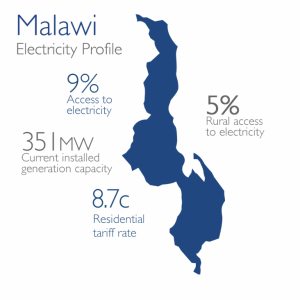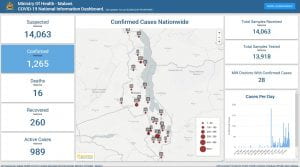Half the internship has already gone by!! I honestly cannot believe it! I feel like we’ve just gotten started and we’re still riding in on so much momentum.
In this week, we have really built upon the foundation of our problem context. The entire premise is that we want for the decontamination unit and hand sanitizer dispenser to be effective and easy sources by which Malawians can maintain sanitation to fend off COVID-19. We want to provide solutions that can improve the current availability of these resources. In order to do that, we have to also understand how much people understand the efficacy of hand washing and other decontamination methods. It seems like the greatest challenge regarding implementing these units will come down to how approachable they are, how easy they are to use, and ensuring people understand how to use them. So from here, where do we go to achieve all of this?
To find some answers to this question, we’re embarking on around a week and a half of interviews. We kicked off this phase by approaching health and technology in Malawi, through speaking to Wayne Decker, president of The Flame Tree Initiative, and Dumisani Kaliati, founder of MicroMek.
Speaking with Dr. Decker, we received very insightful perspective on how energy or lack thereof in Malawi is a great barrier. At least 80% of the entire country remains off-grid. For those of us with technologies that will require a power source, this is an extremely important piece for us to address in our designs. Dr. Decker leads a start-up that has been working on how to sustainably develop energy sources and partnerships over the last decade. This means not only creating opportunities to harness energy and create various grids throughout Malawi, but also to ensure that the way that these sources are developed expands out to create a network of occupations and educational options to Malawians in the surrounding area.
Malawi Power Africa. Retrieved from USAID.gov
Before this, I was generally aware of how resources create a network and subsequent opportunities available to a community, but I did not fully understand the scope of just how broadly this influences Malawian operations. The resources provide a base to develop infrastructure to support communities. The locations of the broadest networks of existing infrastructure used by industries taking advantage of the natural resources Malawi has to offer. Outside of urban areas and communities nearby these industrial grids, there is a large gap to narrow in order to improve equity for citizens of Malawi.
Mr. Kaliati further expanded on how the lack of grid structure contributes to how he started his company. Micromek aims to decrease the gap in diagnostic care in order to provide Malawians with the ability to have their basic medical needs met. Under normal circumstances it requires 11 days to get testing kits to and from members of remote villages. After this, it could take 4 weeks for the results to be received. This is valuable time when looking at providing medical treatment. Micromek is working to close this gap by working with villages and communities to provide proper testing via drone operations. This cuts the travel time down to a few hours and speeds up the process of transporting kits, results, and treatments. Particularly with COVID-19 looming on the horizon, these provisions will become more necessary to combat the deadly effects of the virus.
COVID-19 cases by region as of Tue. Jun 30 2020. Retrieved from the Ministry of Health Malawi COVID-19 Dashboard.
In these conversations, my team and I realized just which areas we would need to strongly consider working on outside of prototype development itself. Through Dr. Decker’s insight, we would need to understand how much of a grid network we could possibly tap into depending on where our decontamination unit or hand sanitizer dispenser would be implemented. In an ideal situation, these units could be connected directly to grid power, but that likely won’t be feasible in every space. Particularly if we are seeking to expand usability of these devices to rural communities, a self-sustaining power source will be required. Having this perspective, we have started to look at the potential to incorporate solar power to the devices. We want these devices to be effective and if it can’t be operated due to power limitations then we would have missed the point of creating a usable device, and our users would be stuck with a useless electronic device.
Additionally, establishing relationships with the village leaders and members themselves will be critical to implementing these technologies. Through Mr. Kaliati’s advice, we realized how much making a device approachable and trustworthy hinges on establishing the trust of village leaders. In fact, establishing and valuing these connections are important not only for our technology, but any technology developers desiring to create for the citizens of Malawi. Working with village leaders allows creators an avenue to observe what a village’s ultimate needs are. It also establishes trust throughout the village community which enables us as creators to really connect with our users more personally to continue designing to fit their expressed needs.
Of course, during this pandemic, it is difficult to perform these evaluations and make these connections. However, this situation provides us with the time to really step back and evaluate and collect information on how to best approach implementation moving forward. It also allows me to really reflect on how I can apply techniques toward future projects and goals I have in health promotions both locally and abroad. All of these principles apply regardless of who we are working with. Working with a community means investing in building relationships with the members. Without speaking and seeking the members’ perspective on their needs, sustainable empowerment cannot be established.
I look forward to continuing to really connect to stakeholders as we move into next week. From having conversations with two stakeholders, we have already learned so much. I cannot even begin to imagine how much more we’ll learn in another week of interviews.
–Krystal

